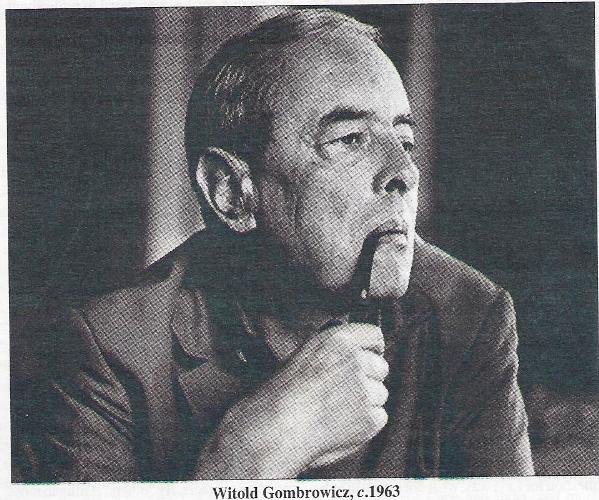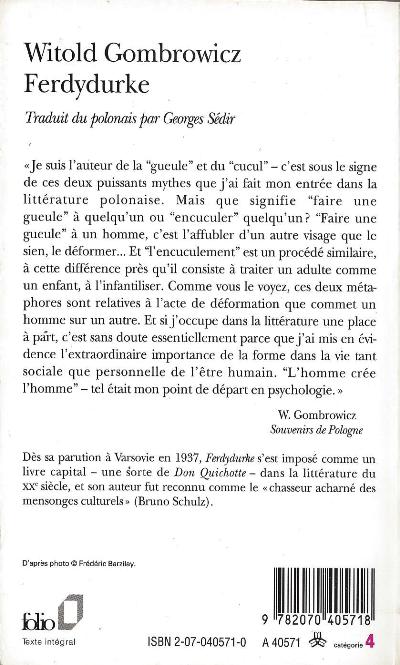 |
GNV tính thu
gom ba bài viết có tính kỷ niệm, hồi ký, chuyện nghề... vô đây, thong
thả sẽ
edit, thành 1 cuốn kiểu như của mấy tay VC Nguyễn Khải, Tô Hoài... “Đi
tìm cái
ác đã mất”! Site của anh
là một trong những site mà người viết thư này hay vào. Tuy không quen,
không biết
anh, người viết cũng đánh bạo mà xin anh cho vài câu trả lời dùm : Làm
cách nào
mà anh đọc nhiều, viết thật nhiều, maintain cái site của anh, giữ mối
liên lạc
bằng hữu và người thân, mà không thức trắng đêm, ngày này sang ngày
khác vậy
??? K Nhân đọc 1
bài viết trên tờ Books, GCC
kiếm thấy câu trả lời: Sớm hay muộn,
tất cả những tay như GCC, sau cùng, đều giống nhau. Chúng không ngừng
làm việc,
chẳng để mất 1 phút. Thật là tởm! V S Pritchett Bài trên Books, dịch từ 1
bài tiếng Anh, trên Literary
Review. Christopher
Hart Erik Satie
may have worn chestnut-coloured velvet suits, eaten thirty-egg
omelettes and
founded the Church of Jesus Christ the Conductor, but this was just
bohemian
decoration. He also walked 12 miles into and out of Paris every day,
composing
all the way. In his introduction to this wonderfully entertaining
little book,
Mason Currey quotes V S Pritchett: 'Sooner or later, the great men turn
out to
be all alike. They never stop working. They never lose a minute. It is
very
depressing.' It should
come as no surprise, perhaps, that most high-achieving creative people
who have
given something permanent to the world are not really in the slightest
bit
bohemian. They discover for themselves Flaubert's famous advice that
one should
live like a bourgeois and put one's bohemianism into one's work.Food is
often
of little importance, mere brain fuel. Patricia Highsmith lived on
vodka,
cereal and bacon and eggs. For lunch Ingmar Bergman ate a revolting
sort of
baby food made up of yoghurt and strawberry jam which he mixed in with
cornflakes.
In the evening he enjoyed watching Dallas. Few strike
you as being terribly busy or working long hours, though poor Mozart is
one.
His daily routine in Vienna in his twenties was: hair done by 6am;
dressed by
7; composing until 9. From 9 to 1 he gave lessons. Then lunch. In the
afternoon
he would either give a concert or carry on composing until 9pm. Then a
visit to
dear Stanze, home at 11, a little more composing and finally to bed at
1. Five
hours' sleep and then the whole routine again. Beethoven
had it easier. Up at dawn, coffee (with exactly sixty beans to each
cup), then
work. A light lunch, walking all afternoon and, in the evening, dinner
out,
theatre or a quiet supper at home. Bed by 10pm at the latest. This
essential
routine of working all morning, walking all afternoon, recurs in the
lives of
other creatives. Benjamin Britten was the same and Mahler too, though
his poor
wife, Alma, had to look after him, lamenting, 'I've sunk to the level
of
housekeeper!' The best
inspiration often came while walking. Beethoven always took a pencil
and paper
with him in the Vienna Woods, and Kierkegaard often came home and
started
scribbling again still in his hat and coat. Some always wrote standing
up -
Hemingway and, I think, Virginia Woolf (who is not covered here).
Nabokov
started standing up, then progressed to sitting and finally lying down.
Few
seem to have practised any more violent exercise than walking, apart
from Byron
with his boxing and riding and, rather surprisingly, Joan Miró. The
dreamy surrealist
was an ardent practitioner of boxing, running and 'Mediterranean yoga'.
He
detested going to parties, telling an American journalist, 'They get on
my
tits.' A key
component of genius is sheer energy, and that requires health and
self-discipline. Haruki Murakami writes in the morning, runs or swims
(or does
both) in the afternoon and is in bed by 9pm every day. He observes,
'Physical
strength is as necessary as artistic sensitivity.' Bohos on
self-destruct might
write a few exquisite fleurs du mal, but they are rare. For
stimulants, again and again, it's just tea and coffee, rarely alcohol,
let
alone anything else. Balzac drank fifty cups of coffee a day and so did
Voltaire. The latter's doctor warned him that it was a slow poison, at
which
Voltaire quipped that it must be, since he'd been drinking it for
seventy
years. He also liked to work in bed, as did Descartes, who hated rising
early.
Unfortunately he took a job teaching philosophy to Queen Christina of
Sweden,
was commanded to be ready to start her lessons at 5am and was dead of
pneumonia
within weeks. Thomas Mann
evidently loved his kip, rising at 8am, enjoying a good hour's nap in
the
afternoon and going to bed around midnight, in a separate bedroom from
his
wife. Richard Strauss appears to have slept a good ten hours a night.
The
results of all this bourgeois self-discipline and these early nights
are plain:
many of those who followed such a regimen were hugely prolific as well
as
great, from Bach to Balzac to Dickens. F Scott Fitzgerald, I was
astonished to
learn, sometimes wrote up to eight thousand words a day. This is
approaching
Barbara Cartland levels, but it didn't seem to do his prose much harm. Proust,
unusually, slept all day and wrote all night, lying in bed propped up
on one
elbow, by the light of one weak, green-shaded lamp. It sounds like a
recipe for
backache, eyestrain and misery, and he wrote, 'After ten pages I am
shattered.'
Should he have gone for a good walk, even with his asthma? Dr Johnson
was also
a nocturnal writer, as was Kafka, by necessity rather than choice, and
Flaubert. He began writing only at 9pm, spending the earlier part of
the day
lunching, dining, strolling, sitting, reading or applying a tonic to
his head
that was supposed to stop him going bald. He was pleased to manage two
pages a
week. (It would of course be unpardonably philistine to suggest that
this was
because of the time of day he chose to write, rather than because he
was
painstakingly crafting the most pristine prose style in modern
literature.) And
there is only one figure here who seems to have worked in the
afternoon: James
Joyce, while writing Ulysses. Daily
Rituals is a thoroughly researched, minutely annotated and delightful
little
book, full of the quirks and oddities of the human comedy. How striking
that
both Milton and Richard Strauss, quite independently, compared their
creativity
to a cow being milked. Its main lesson can be summed up simply enough:
get up,
have a cup of coffee, sit at your desk and begin.  Trên tờ TLS
số 4 April, 2014 có bài điểm cuốn “Nhật Ký” của WG. Người điểm gọi, một
đại tác
phẩm.  
|